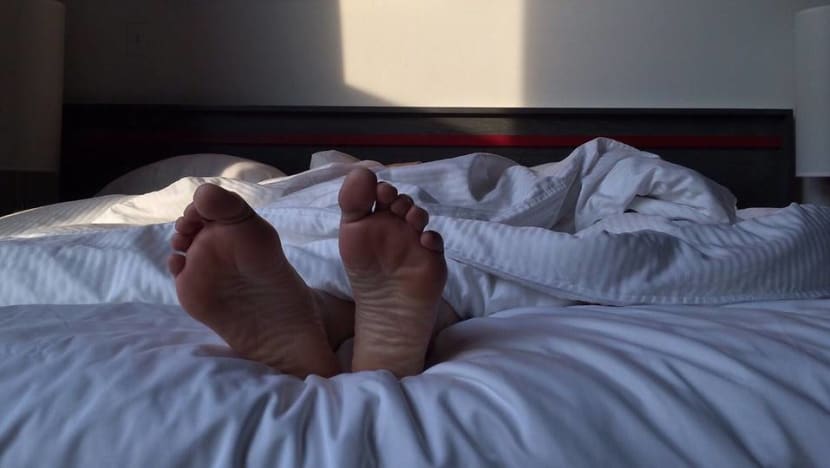Why you may have difficulty sleeping

If you have been tossing and turning in bed till the sun comes up, there are some things you can do to sleep better. (Photo: Pixabay/Wokandapix)
SINGAPORE: Quality sleep is key to good health and well-being. During sleep, your body works to support healthy brain function and maintain physical health. In children and teens, sleep helps with growth and development.
Hence, the way we feel when awake depends very much on what happens while we are sleeping. Here are some tips to slip into slumberland better.
GET RID OF DUST AND CLUTTER
As much as you love your pet and stuffed toys, they have to go - at least out of your bedroom. They are dust and dust mite magnets that can worsen an allergic condition such as asthma, eczema and allergic rhinitis, and deprive you of a good night’s sleep.
To reduce the dust factor in your bedroom, vacuum the floor and wipe surfaces - not dust with a feather duster - with a moist cloth at least once a week. Use dust mite-proof pillowcases and bed sheets. Wash them, as well as your blanket, at least once a week in water heated to 60°C.
Stuffed toys can take up space on your bed and clutter up your room. A study published by the journal Sleep in 2015 showed that people with a messy room, who were at risk of hoarding disorder, took longer to fall asleep and were more likely to suffer disturbed rest.
KEEP IT COOL, DARK AND QUIET
Keep the room as quiet as possible. Any type of noise will negatively affect sleep quality. This means that music in the background - and even white noise - will be interpreted as noise by the brain as it is preparing to sleep.
It may be a no-brainer but switching off the lights when it is time to sleep can help you enter the snooze zone better. In fact, the darker it is, the better you will sleep.
The temperature of your room plays a part too. Your body’s core temperature is naturally low during deep sleep, so by keeping the room cool, you’re helping your body to ease into slumber.
SWITCH OFF MOBILE DEVICES
Many people use their mobile phones as an alarm clock, making it all too easy to check e-mail one last time before falling asleep. The need to check in at all hours of the night or being woken up by the notification of an incoming text message disrupts sleep. Turn off your mobile phone and remove the subtle stress of the need to be responsive and connected.
EXERCISE YOURSELF TO SLEEP
Get regular exercise each day, preferably in the morning - and not before going to bed. There is good evidence that shows regular exercise, such as stretching and aerobic exercise, improves restful sleep.
In the day, get regular exposure to natural light, especially in the late afternoon. Indulge in a relaxing activity just before going to sleep, such as a massage or warm bath.
NAP AND RELAX SMART
Don’t nap for too long. Limit daytime naps to no longer than 30 minutes. In the evening, give caffeine and alcohol a miss. It is a good idea to avoid stimulating activities such as playing a competitive computer game or watching an exciting TV programme just before bedtime. It is also not a good idea to go to bed too hungry or on a full stomach.
Do not take over-the-counter or someone else’s sleeping pills without your doctor’s knowledge. Tolerance can develop rapidly with such medications.
IF YOU STILL CAN’T SLEEP...
If you lie in bed awake for more than 30 minutes, get up and participate in a quiet activity such as reading or watching television, as long as it is not stimulating. Return to bed when you feel sleepy. Do this as many times during the night as needed.
Dr Heng Yee Kiat is a consultant dermatologist at the National Skin Centre. Dr Chong Yaw Khian is a senior consultant at Tan Tock Seng Hospital’s Ear, Nose and Throat Department. Both institutes are members of the National Healthcare Group.















